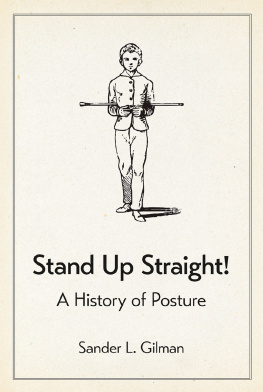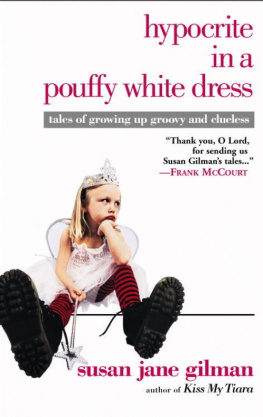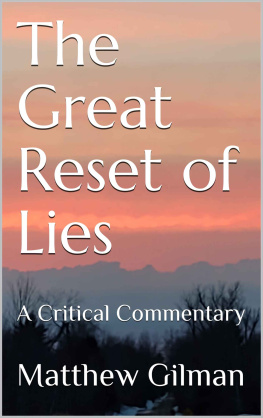Sander L. Gilman
Copyright Sander L. Gilman 2005
Gilman, Sander L.
Franz Kafka. (Critical lives)
1. Kafka, Franz, 18831924 2. Kafka, Franz, 18831924
Criticism and interpretation 3. Novelists, Austrian
20th century Biography
I. Title
Introduction
In many ways Franz Kafka was a typical Jewish male of turn-of-the-century Central Europe in every way, that is, except for his uncanny ability to capture on paper the uncomfortable sense of alienation he felt. Harold Bloom, in his presentation of The Western Canon (1994), is quite right that despite all his denials and beautiful evasions, [Kafka] quite simply is Jewish writing. Yet this is also not quite enough. His ability to express what he felt about his own complex Jewish identity, in a form that was accessible from every direction, made him into the author who most fully captured the sense of alienation, in all of its forms, that haunted the twentieth century. It is said that today there is no literary language in which the adjective Kafkaesque, or the adverb Kafkaesquely, is not understood. Kafkaesque is eerie, randomly occurring, too real, yet somehow not real enough. More banally, it is defined by the Oxford English Dictionary as of or relating to the Austrian writer Franz Kafka (18831924) or his writings; resembling the state of affairs or a state of mind described by Kafka. It is a word in use for more than 50 years, at least in English. Kafka appears first in English in the early 1930s. By 1947 William Shawn, the editor of the New Yorker, then the most read American magazine for intellectuals, could already write of one warned, he said, by a Kafka-esque night-mare of blind alleys. Arthur Koestler, another Habsburg Jew, wrote in 1954 about the curse of Communism (what else?), long before the Moscow purges revealed that weird, Kafka-esque pattern to the incredulous world. Alan Paton in Ah, but Your Land is Beautiful (1981) sees apartheid South Africa in just such terms: When she brought them in, he understood her apprehensiveness at once. How could she see that they were men of tremendous authority. He had never read Kafka, but if he had he would have recognized them. They wore black suits, and did not smile when they greeted him, or offer to shake hands. David Lodge understands his world too in Kafkas terms but with a comic turn, as when in Nice Work (1988) he has the protagonist toiling up the slope from the Falmer railway station, [where he] had the Kafkaesque sensation of walking into an endlessly deep stage set where apparently three-dimensional objects turned out to be painted flats, and reality receded as fast as you pursued it. In July 1999, well before 9 September 2001, the arrest of one of Osama bin Ladens associates in London was dismissed by his lawyer as a Kafkaesque American abuse of power. All the world registers Kafka as a brand name, to be used when evoking the horrors and complexities of the modern world.
Kafka, discovered in the 1920s by the Expressionists, damned by the Nazis in the 1930s and by the Marxists at more or less the same time, was reinvented after World War II by the French Existentialists. They saw in him the father of Angst and the Angst for the father: an Albert Camus before his time. But since then he has been reshaped, rethought, reread, many times. By the 1990s the American poet Kenward Elmslie could mock the world of the Kafkaesque in recounting his own autobiographical path to Kafka:
From crazy brat reading Krazy Kat
To Kafkaesque this Kafkaesque that
Never saw action ransacked my dance act
Came up with a nance act
How Kafkaesque!
Thus the Kafkaesque works of Franz Kafka are the most read and most contested in modern literature. But the man seems just as Kafkaesque. A long line of biographies has tried to capture the man behind the words. From the first, that of his friend Max Brod, to the more recent biographies of Hartmut Binder, Rotraut Hackermller, Ronald Hayman, Frederick Robert Karl, Peter Alden Mailloux, Ernst Pawel, Marthe Robert, Klaus Wagenbach, Reiner Stach and Nicholas Murray, each biographer has sought to present a Kafka that made sense in his or her Kafkaesque system. And what is most remarkable about the bountiful interpretations and biographies is that every critic was right and every biographer was right! Kafka turns out to be as much an Expressionist as a Zionist as a mystic as a pre- and post-Communist Czech as an Existentialist as a postmodernist as a post-colonialist as a (whatever he will be next month). Kafkas work and his life seem to lend themselves to infinite readings and finite exploitations. The fact that one can buy marzipan Ungeheuer Ungeziefer (Monstrous Bugs) in Prague (the Kafkaesque equivalent of Salzburgs Mozartkugeln) shows that this infinite rereading of Kafka is not limited to the intellectuals. Even the sweet-makers in Prague have read Kafkas Metamorphosis, the story of a man who turns into a bug, and know how to market it. Kafka has become the logo of Czech tourism in the twenty-first century. He reappears in a form very different from that presented during the 1968 Prague Spring, where he had been the sign of a cultural renewal independent of Soviet domination. Kafka rules!!!! And this is just as true of mass and popular culture, from the film to the illustrated novel to the tourist kiosk in Prague and beyond. It is almost as if Kafka had planned this. It is most Kafkaesque.
Now, it is clear that Kafka did plan all of this very carefully; it is how he planned it that makes the need for this biography most necessary. Kafka was an obsessive who one day suddenly sits down to write Das Urteil (The Judgment), which, Mozart-like, flows out of him. It is completely there with all its coolness and distance, with all its engagement and horror. Here is the Kafka as original genius, able to become himself because of his response to his father and sister or mother and, most evidently, to Prague and the world that it embodied. Here is the writer who compensates for his sexual, or at least personal, inadequacies with younger women by writing them such a stream of letters that they are overwhelmed and then quite disappointed, much like the cakes offered in the Prague cafs that looked delicious but tasted like flour paste. Kafka is a psychological case and proof, if we in the West truly need it, that unhappiness, depression and inadequacies are the stuff that makes genius just like Beethoven.















